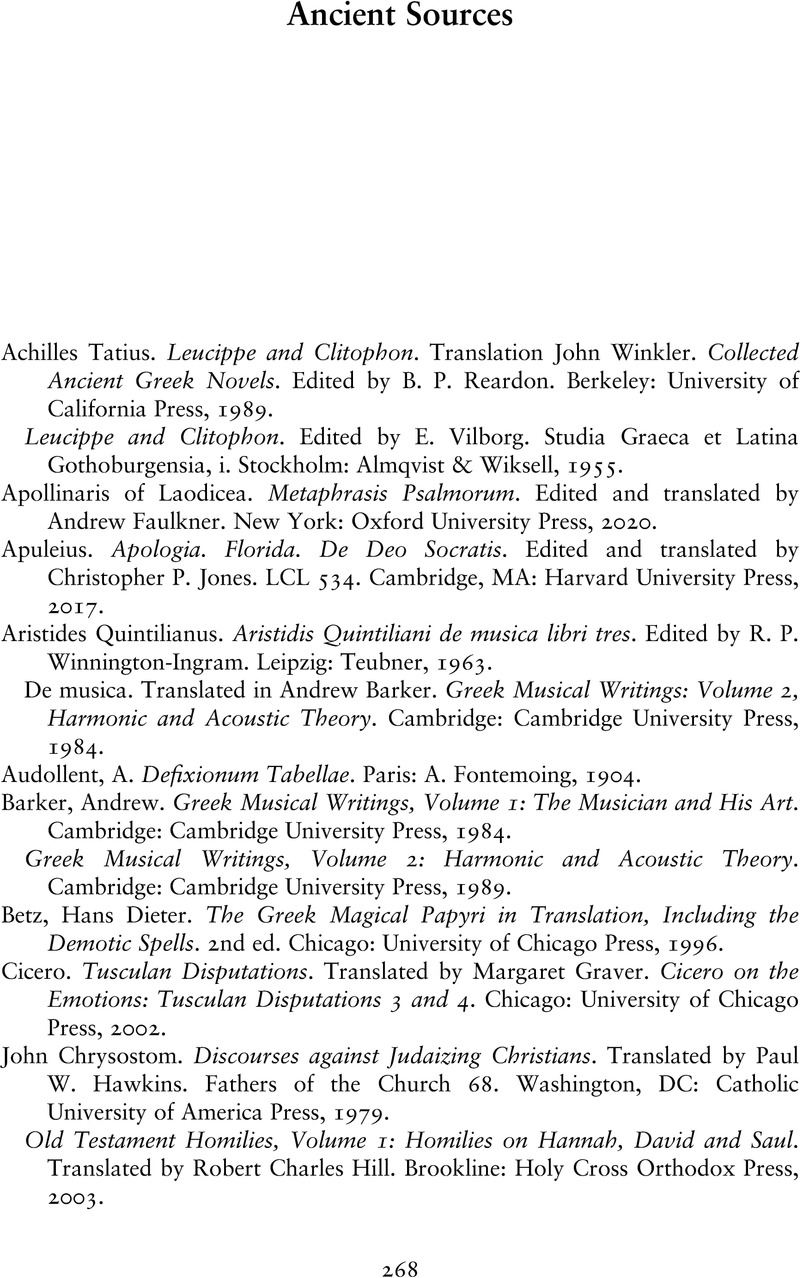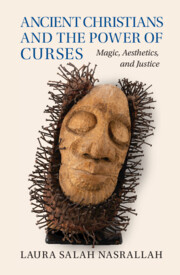Book contents
- Ancient Christians and the Power of Curses
- Ancient Christians and the Power of Curses
- Copyright page
- Dedication
- Contents
- Figures
- Plates
- Preface
- Acknowledgments
- Abbreviations
- Note on the Cover
- Introduction: Curses, Religion, Aesthetics
- 1 Making Justice
- 2 Substance and Story
- Interlude
- 3 Tongues, Breath, Stutter
- 4 Incantation
- Conclusions
- Ancient Sources
- Bibliography
- Index of Ancient Sources
- Index
- Plate Section (PDF Only)
- References
Ancient Sources
Published online by Cambridge University Press: 02 June 2024
- Ancient Christians and the Power of Curses
- Ancient Christians and the Power of Curses
- Copyright page
- Dedication
- Contents
- Figures
- Plates
- Preface
- Acknowledgments
- Abbreviations
- Note on the Cover
- Introduction: Curses, Religion, Aesthetics
- 1 Making Justice
- 2 Substance and Story
- Interlude
- 3 Tongues, Breath, Stutter
- 4 Incantation
- Conclusions
- Ancient Sources
- Bibliography
- Index of Ancient Sources
- Index
- Plate Section (PDF Only)
- References
Summary

- Type
- Chapter
- Information
- Ancient Christians and the Power of CursesMagic, Aesthetics, and Justice, pp. 268 - 272Publisher: Cambridge University PressPrint publication year: 2024



